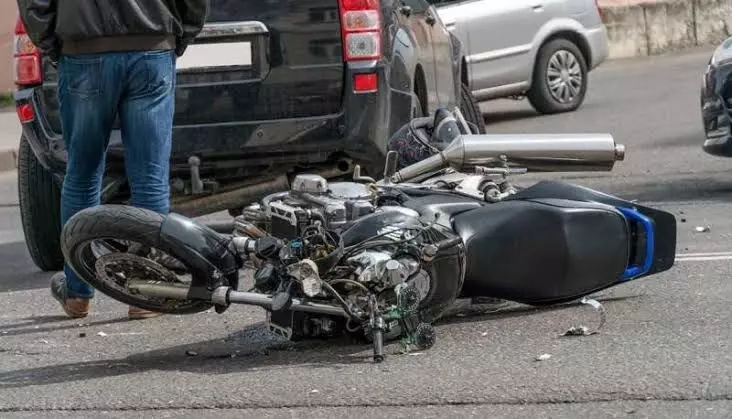53 road accidents and 92 deaths per hour in India: Experts call for improved safety, emergency care
Vulnerable road users, such as motorised two-wheeler riders, accounted for 44.5 per cent of fatalities in 2022, often due to a lack of helmet use
By Newsmeter Network
Representational Image
Hyderabad: The recently announced ‘Cashless Treatment’ scheme by Union minister Nitin Gadkari is set to provide financial coverage of up to Rs 1.5 lakh for road accident victims, ensuring access to seven days of medical treatment without upfront payments.
The initiative is said to be a crucial step for addressing the high costs of emergency care and improving outcomes for road traffic crash (RTC) victims.
The scheme has been lauded by road safety experts, including The George Institute for Global Health and Safety 2024, who view it as a transformative policy to reduce road traffic deaths and disabilities.
Expert endorsements and recommendations
Dr Jagnoor, head of the Injury Program at The George Institute, emphasised the significance of the initiative: “The cashless scheme, the increased coverage amount and the provision of care for seven days will improve recovery outcomes and help break the cycle of poverty caused by catastrophic health expenditures for those injured on roads. However, for the scheme to be truly effective, significant attention must be given to its implementation, which will vary considerably across States, types of roads and road users.”
Dr Jagnoor also highlighted the importance of strengthening pre-hospital emergency care, stating, “Greater investment is urgently needed in pre-hospital emergency care to strengthen the system.”
She added that India’s commitment to achieving the Sustainable Development Goals (SDGs) positions this initiative as a key example of progress: “The upcoming 4th Ministerial Conference on Road Safety in Morocco will be a critical platform to set the direction for the next five years.”
India experiences 53 crashes and 92 deaths per hour
India’s rapid motorisation and expanding road network have contributed to a rising toll of road crashes. The Annual Report on Road Accidents in India (2022) recorded 4,61,312 crashes, leading to 1,68,491 fatalities and 4,43,366 injuries.
On average, India experiences 53 crashes and 92 deaths per hour, with 36 per cent of RTCs occurring on national highways. Vulnerable road users, such as motorised two-wheeler riders, accounted for 44.5 per cent of fatalities in 2022, often due to a lack of helmet use.
Ongoing road safety measures
India has undertaken several road safety initiatives, including:
• Legislation: The Motor Vehicles (Amendment) Act, 2019, focuses on vehicle engineering, road safety enforcement and emergency response.
• Institutional Framework: The National Road Safety Board and Council oversee safety measures, including blackspot identification, road engineering improvements and trauma care.
• Public Awareness Campaigns: Ongoing efforts aim to educate road users on safe driving practices.
The Safe System approach, endorsed by The George Institute, emphasises the interconnectedness of speed, vehicles, roads, and driver behaviour to prevent serious injuries rather than just crashes.
Challenges and the way forward
While the cashless treatment scheme is a promising development, experts stress the need for:
• Pre-Hospital Care: Only 2 per cent of trauma facilities in India currently meet adequate standards for equipment and manpower.
• Insurance Coverage: Despite legal mandates, 58 per cent of vehicles remain uninsured, posing a significant barrier to effective implementation.
A 2012 study from Hyderabad revealed that 46 per cent of households involved in road crashes faced catastrophic out-of-pocket expenditures, underscoring the need for financial protection schemes.
International commitments and goals
India’s road safety measures align with global standards, including the WHO’s Global Status Report on Road Safety 2023 and the Decade of Action for Road Safety. As a signatory to the UNECE World Forum for Harmonization of Vehicle Regulations, the country is advancing initiatives such as the Bharat New Car Assessment Program (BNCAP) to promote safer vehicles.
The government is also investing in sustainable transportation systems, including the Bus Rapid Transit (BRT) and National Transit-Oriented Development Policy, to improve road safety and reduce environmental impacts.
“The Cashless Treatment scheme represents a significant stride in addressing India’s road safety challenges. However, its success will depend on effective implementation, enhanced emergency care, and sustained investment in safety measures. The George Institute remains committed to supporting this initiative to ensure a safer and healthier future for all road users,” concluded Dr Jagnoor.